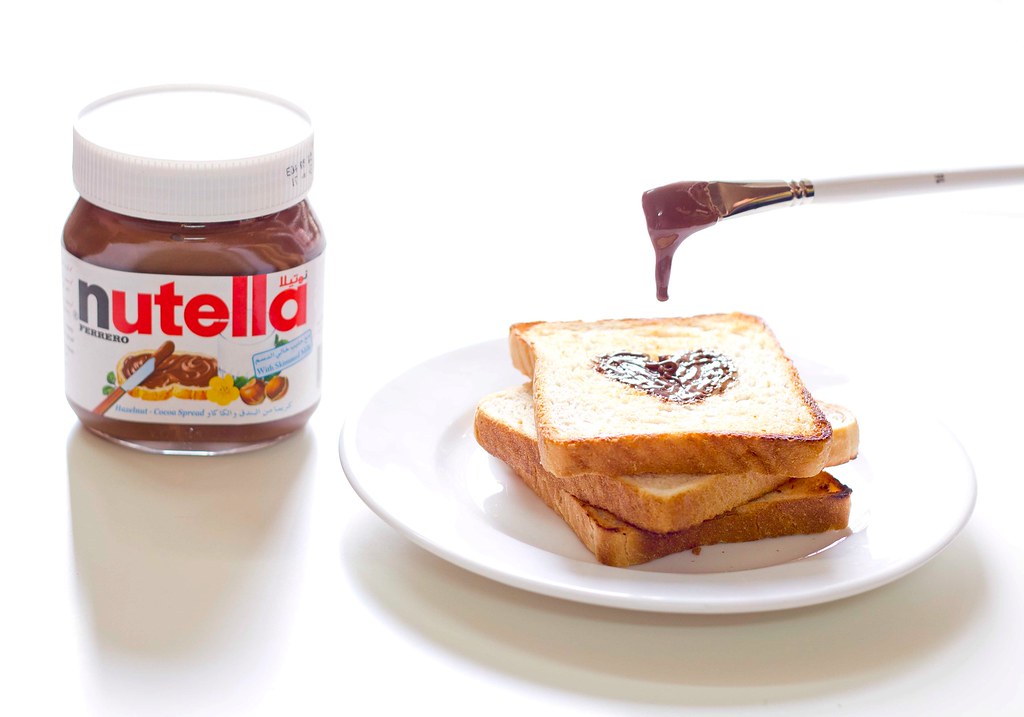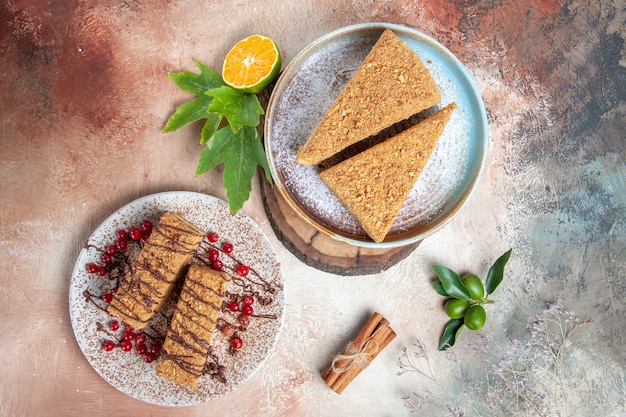If there’s one thing that everyone seems to agree on, it’s that brownies make life better. These bite-sized bits of goodness are a staple in homes across the world and for a good reason. They have a decadently chocolatey, chewy, and fudgy appeal that is simply irresistible. However, with many people now looking for healthier alternatives and options to traditional baking ingredients, there’s a rising interest in learning about substitutes for vegetable oil in brownie recipes.
Why substitute vegetable oil? Well, the answer might surprise you. Vegetable oil, although a standard ingredient in most baking recipes, is high in unsaturated fats. This can contribute to unwanted weight gain and other health concerns. Therefore, finding healthier substitutes without compromising the taste and texture of your brownies is a win-win.
In this enlightening article, we will reveal some of the best substitutes for vegetable oil when baking brownies. From avocados to Greek yogurt, we will tackle the pros and cons of each substitute, including its nutritional value, so you can bake your brownies with confidence and health in mind.
Reinvent Brownie Recipes: Vegetable Oil Alternatives
Brownies are loved by many but can be made healthier by replacing the commonly used vegetable oil. This substitute not only makes brownies healthier but can also enhance their flavor. Here are a few amazing alternatives you can consider:
- Butter:Butter is a classical alternative to vegetable oil and can give your brownies a richer flavor. It is a dairy product high in fat that can add a certain creaminess to your brownies.
- Applesauce:This substitute is a healthier option that maintains the moisture of the brownies while reducing their fat content. An equal amount of applesauce can replace oil in your recipe.
- Coconut Oil:Coconut oil is another excellent alternative with its unique flavor. It’s a healthier substitute since it contains monounsaturated fats which are healthier than the fats in vegetable oil.
- Greek Yogurt:This alternative is low-fat and healthier. Greek yogurt can give your brownies a tangy flavor and moist texture. It’s a great way to cut-down on saturated fats without compromising on the taste.
These substitutes can not only make your brownies healthier, but also introduce new flavors and textures into your classic brownie recipe. Keep experimenting and reinvent your brownie recipes!
Exploring the Purpose of Vegetable Oil in Brownies
Vegetable oil plays a pivotal role when it comes to making brownies. This often overlooked ingredient serves a myriad of purposes that contribute to the taste, texture, and overall quality of the dish.
Role and Function of Vegetable Oil in Making Brownies:
| Purpose | Description |
|---|---|
| Moisture | Vegetable oil helps to retain moisture in the brownies, counteracting the drying effects of baking and ensuring a moist, chewy texture. |
| Fat Content | As a fat, vegetable oil contributes to the richness and mouthfeel of the brownies. It also aids in carrying flavors, allowing the chocolate and other ingredients to shine. |
| Leavening | While not a leavening agent per se, vegetable oil plays a part in the leavening process. The oil interacts with other ingredients, aiding in their release of gases and helping to give the brownies a lift. |
| Texture | The vegetable oil coats the flour proteins, limiting their development and keeping the brownies tender rather than tough. |
Understanding the role of vegetable oil can help us appreciate its importance. However, if you find yourself out of vegetable oil, there are still various substitutes you can use to achieve similar results. These include applesauce, mashed bananas, yogurt, and butter. Keep in mind, each of these will have its own unique impact on the taste and texture of your brownies.
Suitable Butter Replacements in Brownie Recipes
If you’re out of butter or looking to make your brownies a bit healthier, there are numerous substitutes you can consider. Here are a few notable alternatives that can help you achieve spongy and moist brownies.
Applesauce
The high pectin content in applesauce makes it an excellent butter substitute. It helps to bind the brownie mix together, much like butter. Applesauce also adds a slight sweetness and moisture to brownies while lowering the fat content. Use an equal amount of applesauce in place of butter for best results.
Avocado
Due to its creamy texture, avocado can act as a butter replacement in brownie recipes. It can make your brownies extra soft, moist, and rich without affecting the overall flavor profile. Keep in mind that you will need to blend the avocado very well to prevent any lumps in the final product. Use an equal amount of mashed avocado as the substitute.
While these substitutes can offer a healthier alternative, it’s important to note the effect each replacement can have on the brownie’s flavor and texture. If you want to maintain the classic brownie taste, a mix of these alternatives and reduced-fat butter might be the best idea. However, it’s all down to personal preference. Happy baking!
Making Brownies Using Fruit Purees
Making brownies with fruit purees is a healthy alternative to using vegetable oil. Not only does it add a unique flavor to your brownies, but it also reduces the overall fat content. Common fruit purees used in baking include applesauce, mashed bananas, or pureed prunes.
To replace vegetable oil with fruit puree in your brownie recipe, use an equal amount of puree. If your recipe calls for 1/2 cup of oil, use 1/2 cup of fruit puree instead. Remember, depending on the fruit puree you choose, it may alter the flavor of your brownies.
When using applesauce or mashed bananas, you will have a hint of fruit in your brownies. These fruits also add moisture to your brownies, making them softer and more cake-like. Pureed prunes, on the other hand, tend to have a more neutral flavor, making them a good choice for chocolate brownies. They make your brownies moist and fudgy.
Give fruit purees a try in your next brownie batch. You will be surprised by the delicious and healthy results.
Substituting Vegetable Oil with Nut Butters in Brownies
While vegetable oil is a common ingredient in most brownie recipes, substituting it with nut butters is an excellent alternative for those looking for a healthier option. Nut butters, such as almond, peanut, or cashew, are not only rich in protein, but they also add a new depth of flavor to your brownies.
To substitute vegetable oil with nut butter, you will need to use a 1:1 ratio. This means that if your brownie recipe calls for 1 cup of vegetable oil, you should use 1 cup of nut butter instead. However, please note that nut butters have a thicker consistency than vegetable oil, which you need to consider. You may need to melt the nut butter slightly to match the consistency of vegetable oil for a more accurate substitution.
Additionally, using nut butters instead of vegetable oil will make your brownies denser and fudgier. This is because nut butters have less water content than oil. If you prefer a cake-like texture, you may need to add a bit more baking powder to your recipe or reduce the amount of nut butter slightly.
Last but not least, the type of nut butter you choose will dramatically influence the taste of your brownies. Almond butter tends to be more subtle, while peanut and cashew butters have stronger flavors. Experiment with different types of nut butters to discover which one you prefer.
By substituting vegetable oil with nut butters in your brownie recipe, you can create delicious, healthier treats that cater to various dietary preferences and needs.
How Greek Yogurt Can Replace Vegetable Oil
When baking brownies, it isn’t uncommon to find vegetable oil among the key ingredients. However, if you feel like cutting down on fat or just simply adding a touch of tanginess to your brownies, Greek yogurt is an excellent substitute for vegetable oil.
Greek yogurt is known for its thick, rich consistency, which can do wonders for your brownie’s texture. It also contains protein, a nutrient that most baking ingredients do not have. This can give your brownie a little health boost!
How to Substitute
To substitute vegetable oil with Greek yogurt, you need to check the ratio. Here is a simple guide:
| Vegetable Oil | Greek Yogurt |
|---|---|
| 1 cup | 3/4 cup |
| 1/2 cup | 1/4 cup + 2 tablespoons |
| 1/4 cup | 3 tablespoons |
Remember, the measurements for Greek yogurt may vary depending on the brand and fat content, so it’s best to start with less and gradually add more if needed.
Results You Can Expect
Replacing vegetable oil with Greek yogurt in your brownie recipe will result in a cake-like texture. The brownies will be moist and just a tad bit denser than when using oil. The tanginess of the yogurt will also provide a balance to the sweetness of the chocolate, giving your brownies a unique, complex flavor.
Using Coconut Oil as a Healthy Alternative
When it comes to baking, especially brownies, most recipes call for vegetable oil. However, for those who are health-conscious or simply eager to try something new, substituting vegetable oil with coconut oil can be an excellent alternative.
Health Benefits of Coconut Oil
Coconut oil is high in natural saturated fats that not only increase the healthy cholesterol known as HDL in your body but also help convert the LDL “bad” cholesterol into good cholesterols. By increasing the HDL’s in the body, it helps promote heart health and lower the risk of heart disease. Additionally, the fats in coconut oil give the body access to quick energy and can have therapeutic effects on brain disorders like epilepsy and Alzheimer’s.
Using Coconut oil in Brownie Recipes
To substitute coconut oil for vegetable oil in your brownie recipe, you can typically use a 1:1 ratio. This means if your recipe calls for 1/2 cup of vegetable oil, you can substitute it with 1/2 cup of coconut oil. However, it’s crucial to note that coconut oil has a distinct taste and may slightly alter the flavor of your brownies, giving them a subtle coconut undertone.
Moreover, you’ll want to ensure you’re properly melting the coconut oil before adding it to your batter. If you’re using a recipe that calls for a solid fat like butter, you can substitute coconut oil at room temperature, as it has a similar consistency. Make sure to mix your ingredients well to effectively incorporate the coconut oil into your batter.
Effects of Using Different Oil Substitutes on Brownie Texture
Vegetable oil is a common ingredient in brownie recipes because of its light, nearly flavorless profile, and its ability to create a pleasing, moist texture. However, sometimes vegetable oil might not be available, or perhaps you may wish to change the flavor or nutritional profile of your brownies. This is where oil substitutes come into play.
Butter or Margarine
Butter and margarine are the most common substitutes for vegetable oil. Both can give your brownies a richer, more buttery flavor, but they also have a higher saturated fat content. When using these substitutes, your brownies may turn out denser and less moist than if you had used vegetable oil.
Coconut Oil
Coconut oil imparts a subtle tropical flavor to brownies and can help create a fudgier texture. It is also a healthier substitute due to its beneficial fatty acids. However, because it has a higher melting point, the texture of the brownies might be slightly denser than when using vegetable oil.
Each oil substitute will have different effects on the texture and taste of your brownies. The best substitute will depend on your personal preference for brownie texture and flavor. Happy baking!
Baking Brownies: Recipes Without Vegetable Oil Explained
Your brownie recipe calls for vegetable oil, but what if you don’t have any on hand or you’re looking to reduce your intake of unhealthy fats? Thankfully, there are numerous substitutes you can use instead for a healthier alternative or simply out of necessity.
- Applesaucecan be used in a 1:1 ratio as a direct substitute for vegetable oil in brownie recipes. It significantly reduces the amount of fat and adds a hint of fruitiness to your brownies.
- Greek yogurtcan also replace vegetable oil in equal measure. It reduces the fat content while maintaining the moisture and texture of the brownies.
- Melted coconut oilis another fantastic oil substitute. This may alter the flavor slightly, but if you’re a fan of coconut, then it’s a tasty and healthier alternative.
- Mashed bananaskeep your brownies moist and slightly increases the sweetness. Use a ratio of 1:1, just as you would with the other substitutes.
- Pumpkin pureeis a particularly great substitute in chocolate brownie recipes. It adds a subtle fall flavor and keeps everything nice and moist without adding a significant amount of fat.
Each of these alternatives not only offers a solution when you’re out of vegetable oil, but also adds a unique flavor, so experiment with them to see which you like best.
FAQ: What can you use instead of vegetable oil in brownies
What type of oil can I use as a substitute if I want to avoid “vegetable oil” in my recipes, specifically for dishes like brownies?
You can use olive oil, particularly extra light olive oil, in place of vegetable oil for a healthier twist. It’s a great substitute for vegetable oil in brownies because it adds moisture without significantly altering the flavor or texture of the brownies.
I don’t have vegetable oil on hand for my batch of brownies; can I use canola oil instead?
Yes, you can substitute vegetable oil with an equal amount of canola oil. Canola oil is light and has a mild flavor, making it a suitable vegetable oil substitute in brownies, ensuring your brownies are moist and delicious without any overpowering aftertaste.
I’m looking for the best substitute for vegetable oil in baking. What would you recommend for the right balance and flavor, especially in baked goods like brownies?
Avocado oil makes a great substitute. Its mild flavor and high smoke point make it excellent for baking. You can use it in place of vegetable oil in equal proportions, ensuring your brownies retain a rich, moist texture without any added taste.
I’m considering using olive oil in place of vegetable oil for my brownies. What differences should I expect in the taste and texture?
Olive oil, especially extra virgin, will add a distinct flavor to your brownies. While some people enjoy the nuanced taste, others might find it strong. Regarding texture, olive oil makes brownies rich and moist. For a more neutral taste, you can opt for light or extra light olive oil.
I am curious if grapeseed oil can work in place of vegetable oil in brownies. What impact would it have?
Grapeseed oil is an excellent substitute for vegetable oil in brownies, given its neutral flavor and high smoke point. It maintains the moisture content, making your brownies soft and chewy without imparting any additional flavor.
I’ve heard sunflower oil can also be used in baking. How does it compare to other oils when substituted for vegetable oil in brownies?
Sunflower oil is a viable option as it has a light taste and maintains the moisture content in brownies. It’s similar to canola or soybean oil in performance, ensuring that the texture of your brownies won’t be affected, and they remain fluffy and moist.
Can I replace the oil in baking, particularly for brownies, with butter for a richer flavor?
Yes, you can substitute the amount of vegetable oil with an equal amount of melted butter. This swap will give your brownies a richer, creamier flavor and a wonderfully decadent texture. Be aware that this might also make your brownies a bit heavier.
Would sesame oil or peanut oil work instead of vegetable oil for baking sweets like brownies?
It’s best to avoid oils with strong flavors, such as sesame or unrefined peanut oil, as they can overpower your brownies with an unintended taste. However, if you’re adventurous about flavors and enjoy these profiles, you can try them in a small batch to see if you appreciate the outcome.
I want to make brownies without adding any extra coconut flavor. Would refined coconut oil work in place of vegetable oil?
Refined coconut oil is a fantastic option if you don’t want the coconut flavor in your brownies. It acts much like vegetable oil in baking, contributing to the moistness and soft texture without the coconut taste.
Is it possible to use eggs and oil together as a combination substitute for vegetable oil in a brownie recipe?
While you can’t directly replace vegetable oil with eggs, you can use fewer eggs along with a substitute oil for a similar consistency. For instance, if your recipe calls for a half cup of oil, you could use a quarter cup of a neutral oil like canola and one or two extra eggs to retain the moisture and texture in your brownies. This method works because eggs contribute to the structure and stability in baked goods.
What are the best vegetable oil substitutes I can use specifically for brownies?
For brownies, the best vegetable oil substitutes include melted butter, canola oil, avocado oil, and melted coconut oil. If you opt for coconut oil, it may impart a coconut flavor to your brownies, enhancing their taste.
I don’t have any vegetable oil on hand for my brownie mix. Can I use extra virgin olive oil instead of oil?
Yes, you can use extra virgin olive oil as a substitute for vegetable oil in brownies. However, keep in mind that extra virgin olive oil has a distinct flavor that might come through in the brownies. For a more neutral taste, it’s better to use light olive oil.
I’ve read that butter can be used in place of “vegetable oil” for brownies. Is this accurate?
Absolutely! Melted butter can be used in place of vegetable oil in brownies. It not only provides moisture but also gives the brownies a richer, creamier flavor. Remember to use an equal amount of melted butter to replace the oil your recipe calls for.
Can canola oil substitute vegetable oil in brownies?
Yes, you can substitute canola oil for vegetable oil in brownies. It’s a neutral oil, so it won’t alter the flavor of the brownies, and it’ll ensure they have a moist texture.
My recipe calls for a certain vegetable oil called “soybean oil.” Can I use another type of cooking oil in its place?
Certainly! Many cooking oils can be used interchangeably. Canola oil or sunflower oil are excellent alternatives to soybean oil due to their neutral flavors.
Is it true that using coconut oil as a substitute for vegetable oil can give coconut flavor to your brownies?
Yes, unrefined or virgin coconut oil retains the natural aroma and flavor of coconuts, so when you use it in brownies, it might add a subtle coconut taste. If you’d like to avoid this flavor, go for refined coconut oil.
When looking for an oil that gives a similar texture to vegetable oil in brownies, which one is recommended?
Canola oil is often recommended as it closely mimics the properties of vegetable oil, ensuring that the texture of brownies remains soft and moist.
I like the taste of olive oil; can it be used as a substitute for vegetable oil in brownies?
Yes, if you like olive oil, you can use it in brownies. However, it’s best to use light or extra light olive oil as they have milder flavors compared to extra virgin olive oil.
I’ve run out of vegetable oil, but I have a bottle of oil called “avocado oil.” Can I use it for my brownies?
Absolutely! Avocado oil is also a neutral oil, making it a great alternative to vegetable oil for brownies. It will give your brownies a moist and soft texture.
Are there any oils I should avoid when looking for a vegetable oil substitute in brownie recipes?
While most oils can be used, it’s best to avoid oils with strong flavors like sesame oil or strong extra virgin olive oils as they might overpower the taste of your brownies.






